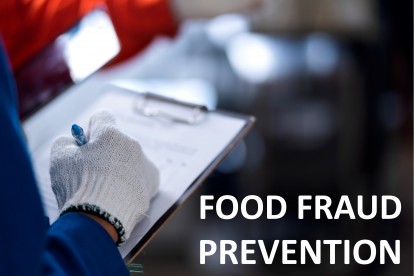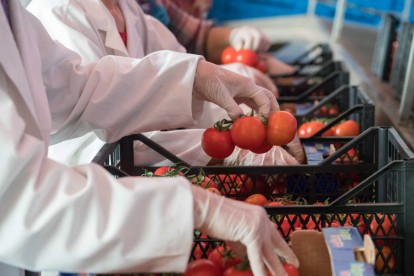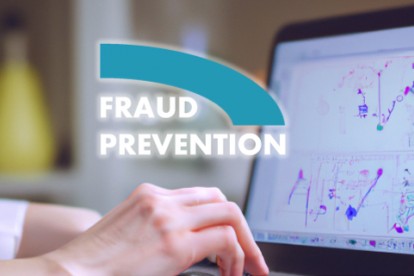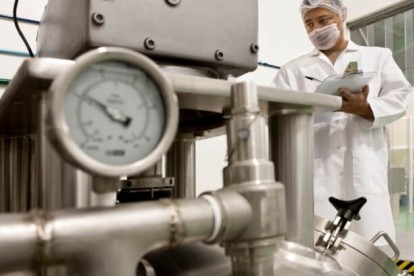Answer questions effectively and efficiently with the correct method. For the verification of the geographical origin, the multi-isotope fingerprint of your product or material is determined by stable isotope ratio analysis.
Consumers receive lots of information concerning their food, much of it misleading or diverse. For ‘premium’ products, the issue can be greater because they often rely on geographical origin as a factor in their higher value. For instance, products claimed with Protected Designation of Origin (PDO) and Protected Geographical Indication (PGI), carrying emotionally driven selection of local and regional food or simply due to black-listed areas of origin. This creates scope for profit through adulteration and mislabeling but at the same time, it provides opportunities for the food industry to secure its sourcing practices, differentiate in the market and develop a brand to a premium level.
Methods for origin analysis
Among the available techniques, Stable Isotope Ratio Analysis has a prominent position for reasons such as:
A. The multi-isotope fingerprint (carbon, nitrogen, sulfur, hydrogen and oxygen isotope ratios) contains a wealth of information about the local climate, the soil and the geological background, the plant’s physiology and metabolism, the fertilizers, the animal feed, even to details such as the proximity to the sea, greenhouse production and organic farming.
B. Stable Isotope Ratio Analysis has been used for decades in proving geographical origin claims, having elevated the current knowledge and expertise to high standards for diverse matrices and topic complexity.
C. Today, it is an affordable testing solution, offered in a strictly commercial way and in versions that are based on the science but converted into a simple service.
The use of stable isotopes in the verification of the geographical origin of food led to the creation of isotope databases, collecting data for a certain region, country or many countries. These isotope databases are product-specific. They provide general information of the expected variation of the isotope fingerprint between the given areas. Identifying that databases have certain advantages and disadvantages, it is recommended in many cases to use instead a targeted and specific authentic reference dataset that refers to each case.
This Reference Sample System (RSS) can be used to control the supply chain, to check a suspect source of products or to compare batches. The principle is that usually the question is not “where does it come from” but rather “is it truly from there?”. In order to provide an accurate answer, there is a need for the direct comparison of the tested samples with authentic, specific reference samples from a given area and for a given time period (e.g. harvest year).
Question the origin of specific samples per reference sample system
The Reference Sample System (RSS) (awarded with the “Burgenländischen Innovationspreis für Dienstleister” in the year 2015) provides high reliability through its multi-component approach. The service includes not only an analysis and its results but also an illustrated way to present the outcome of the testing that can be used in the longer term for monitoring the deviations of a product across time. The outcome is a full service, not just a one-off test. Further, the RSS uses contemporary fingerprints that help to avoid seasonal variations.

Database-driven origin verification
A good and functional database needs a lot of data. It also needs to be updated for seasonal and annual variations. However, isotope databases can be a strong tool for quick screening of certain products. The need for reliable authentic samples is significant. The development of a reliable database takes time and costs could be high. As for the need to keep an isotope database up-to-date, experience shows that the seasonal variations of fingerprints due to different conditions could potentially be more significant than geographical variations, especially between neighboring areas.

Nature does not follow political borders. Isotope fingerprints, like any kind of chemical fingerprint, do not alter between the two sides of country borders or regional boundaries. The verification of geographical origin is a forensic investigation, where scientific evidence is used in order to provide evidence for or against a hypothesis. Comparing isotope fingerprints makes it possible to get to a reasonable conclusion regarding the geographical origin claim of a product and to identify a possible false declaration based on solid scientific arguments that can lead to further investigation.
Risk Mitigation
During recent years, new versions of food safety standards have included a comprehensive requirement for risk assessment in the food industry, holding a place for food fraud as a major influencing parameter. Companies are required to deliver risk mitigation plans, taking measures against the risk of food fraud in their supply chains. In such a scheme, analytical testing is a key feature that leaves little space for assumptions and decreases dramatically the risk of food fraud incidents like a false declaration of geographical origin.
The specifications for Country of Origin Labeling has become a major issue between authorities, governmental and federal institutions as well as the food industry itself. In an evolving environment towards sustainability, responsible sourcing and ESG, the food market will strongly continue to be governed by new ‘premium’ products, locally sourced food and regional brands with high value. Geographical origin verification is expected to be a prominent tool in these procedures. After all, food fraud prevention is a fight and it needs synergies in order to succeed. The pioneers will have an advantage while the followers might be left behind.
Food Fraud Records 2024
Food authentication solutions as a tool in the food fraud risk mitigation plan
Success Story - Bohemia Sekt
BOHEMIA SEKT s.r.o. and Imprint Analytics GmbH collaborate to ensure authenticity and quality in sparkling wine production
Success Story - Lidl Austria
Lidl Austria and Imprint Analytics GmbH cooperate to secure regional production and ensure integrity in national supply chains
Navigating the Landscape of Food Authenticity in Agriculture
Check out our brand new expert article concerning Food Authenticity
Food Fraud Records 2023
Food authentication solutions as a tool in the food fraud risk mitigation plan
Food Safety Briefing with David Psomiadis still available on demand
Amidst a rising tide of food fraud, the quest for authenticity and transparency becomes more vital than ever. While the food companies struggle to navigate between new regulations on sustainability, ESG and responsible sourcing, consumers raise their demands and expectations. Let's unveil the secrets hidden in our plates and cultivate a culture of authentic food.








